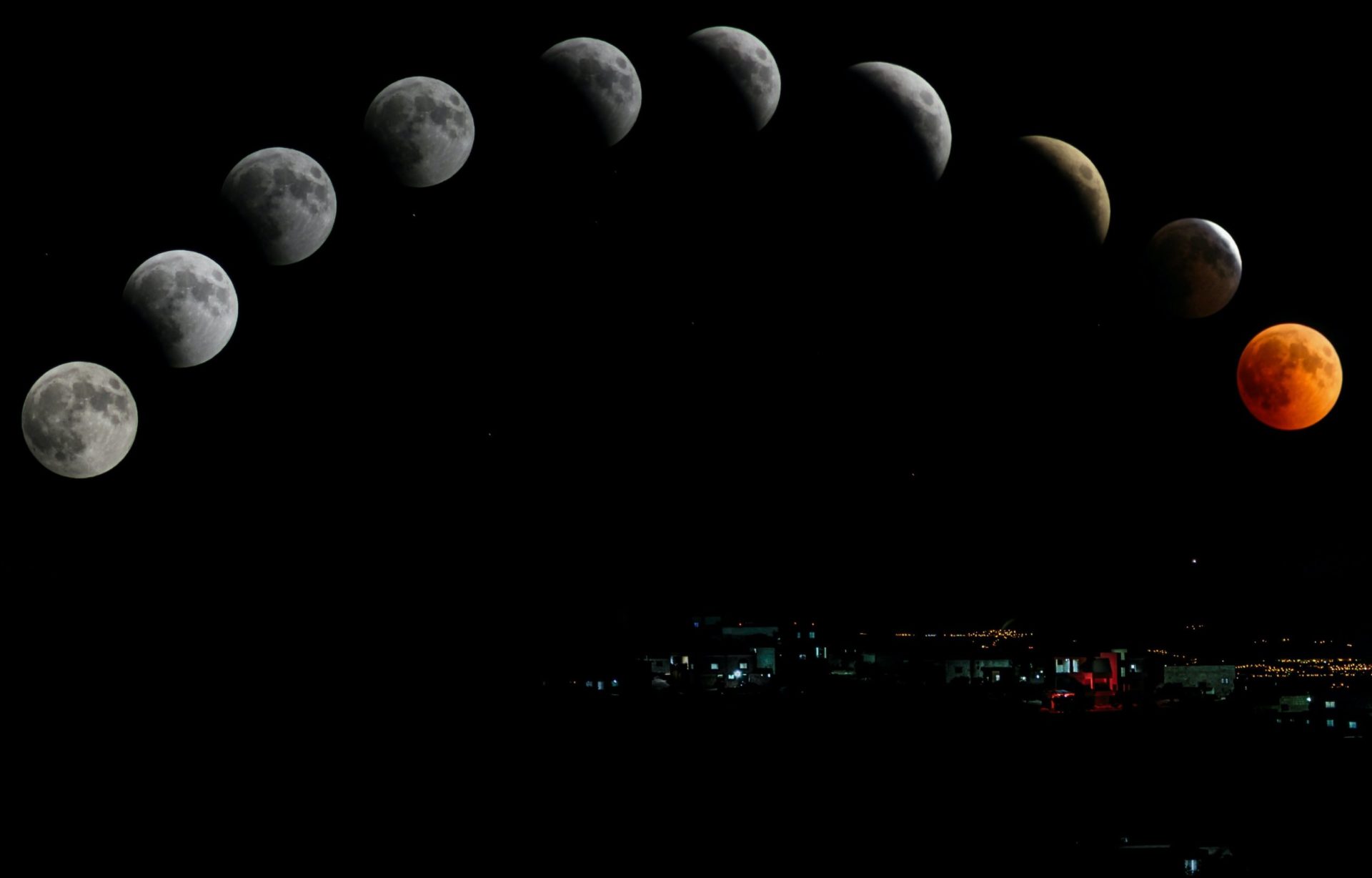When Astrology Fails
The following essay is a chapter in my upcoming book, The Endless Sky. I want to give the FCEA Community a sneak preview of it because I can guarantee that it is a topic that will keep you tossing and turning in your bed as you come online as working astrologers – sometimes the system just doesn’t seem to be working at all. Before you decide to go back to your “day job,” here’s a checklist of possibilities to consider . . .
 I got a worried email from a student of mine this morning. He had a client who had experienced transiting Uranus conjunct her Moon, but “nothing had happened.” He was concerned and embarrassed that his predictions had failed. I offered him a few possible explanations. I am sure that this student of mine was not the first astrologer to have had this disconcerting experience.
I got a worried email from a student of mine this morning. He had a client who had experienced transiting Uranus conjunct her Moon, but “nothing had happened.” He was concerned and embarrassed that his predictions had failed. I offered him a few possible explanations. I am sure that this student of mine was not the first astrologer to have had this disconcerting experience.
“My great concern is not whether you have failed, but whether you are content with your failure.”
– Abraham Lincoln
The first point I want to make will sound pretty dogmatic, but I do believe it to be true: astrology never fails. I would quickly add that astrologers themselves often fail, but that is a different issue. Astrology is fundamental to how the universe operates. Astrology failing would be like gravity failing. I’ll temper that remark slightly a little later in this essay, but I really want to put it up there “in lights” before I write another word.
Still, astrologers’ predictions sometimes do fail and it behooves us not to be afraid of acknowledging that fact and perhaps learning something from it. There are a lot of potential issues here. Let’s have a look at them.
SYMBOLISM IS NOT LITERALISM
 I have beaten this drum since long before The Inner Sky was a gleam in its daddy’s eye, so I don’t want to belabor it here. Still, this core point is the heart of the matter when it comes to “astrology’s failures.” Symbolism is not the same as literalism. We don’t read an astrological chart in the same way that we read a news feed or a computer manual. Let me give you an example. An astrologer sees Uranus entering someone’s seventh house. The astrologer predicts divorce. No divorce happens.
I have beaten this drum since long before The Inner Sky was a gleam in its daddy’s eye, so I don’t want to belabor it here. Still, this core point is the heart of the matter when it comes to “astrology’s failures.” Symbolism is not the same as literalism. We don’t read an astrological chart in the same way that we read a news feed or a computer manual. Let me give you an example. An astrologer sees Uranus entering someone’s seventh house. The astrologer predicts divorce. No divorce happens.
Has astrology failed? No, it is the astrologer who’s now got egg on his or her face. That prediction was too narrow. Its very rigidity would doom it to being wrong more often than it was right. Think about it logically: the majority of long-term partnerships have survived one or the other of the people experiencing that transit. That’s one painfully obvious point. The real point, though, is that while divorce is indeed one possible expression of “The Lord of Earthquakes and Lightning Bolts” entering the House of Marriage, it is not the only one. What is really happening is that a pulse of individuation is in play in the client’s personal relationships. That pulse can play out in a lot of different ways.
 A wife tells her husband that instead of going on their usual vacation with his family this summer, she wants to attend a week-long astrology seminar. She is afraid he will object, but instead he says, “Great! That’s actually a relief. I was hoping to skip my family this year, rent a motorcycle, and ride across New Mexico. I was afraid that you would be upset about skipping our vacation.”
A wife tells her husband that instead of going on their usual vacation with his family this summer, she wants to attend a week-long astrology seminar. She is afraid he will object, but instead he says, “Great! That’s actually a relief. I was hoping to skip my family this year, rent a motorcycle, and ride across New Mexico. I was afraid that you would be upset about skipping our vacation.”
What’s just happened? They’ve given each other some Uranian breathing room. They are happier and closer because of it. They’ve probably also set a healthy precedent for “future negotiations” – one that works better for each of them.
That’s a far more self-aware response to this transit than divorce.
Our big question: did “nothing happen?”
Of course not – the astrologer who foresaw a divorce simply had too narrow a preconception about what a Uranus transit meant. Again, symbolism is not literalism. In this case, the client (not the astrologer!) got the meaning of the transit right. Sadly, this 100% possible higher response to Uranus entering the seventh house lay outside the scope of the astrologer’s imagination.
That kind of interpretive error alone accounts for the lion’s share of situations where “astrology fails.” Never under-estimate your clients – and never forget that there is a higher evolutionary meaning in every transit no matter “how bad it looks.”
Let’s look at another explanation for astrology’s apparent failures.
HUMANS LIVE IN TWO WORLDS
We humans naturally walk around in physical bodies, our senses engaged with the outer world. We bounce off each other, dealing with our needs and our appetites, and wrestling with our circumstances.
 But we also live in our inner worlds.
But we also live in our inner worlds.
Even our understanding of the physical world is conditioned by our inner attitudes and moods. If you doubt that, try reasoning with a depressed person that “life is not really so bad.”
On top of that, every night we close our eyes, surrender our engagement with the outer world, descending utterly into the abyss of our inner lives.
That deep psychic underworld we all inhabit is at least as central to our experience as is the outer world of our jobs, the news, and the daily grind.
My point here is simple and it has fundamental relevance to our notion of “astrology failing.” Sometimes an astrological event unfolds 100% on the inner plane. It is still “an event,” except that its nature is purely psychic. It has no direct external behavioral correlates at all.
Again, let’s consider our example of Uranus transiting into a woman’s seventh house. This time, let’s say she is single and has been content to remain that way. Let’s say that her attitude toward relationships has boiled down to, “Why buy a cow when milk is so cheap?”
That’s a funny line, but it also probably reflects a certain brittleness in this woman.
Let’s say that some of her defensive attitude about relationships derives from a fear of being vulnerable. Let’s say that external social conditioning – always the enemy of the planet Uranus – has forged a resistance in her to trusting anyone. Let’s postulate, for example, that her father abandoned the family when she was little.
Let’s add that she has surrounded herself with friends who also protect themselves from their own loneliness in that same “sour grapes” fashion – by devaluing relationships.
Uranus entering this woman’s seventh house might be about her claiming her own true individuality back from those external influences. Sitting on a park bench having a long talk with herself, she realizes that in her true nature, she is potentially a loving partner – or at least she would like to be. She longs for that outward reality to manifest – and it takes courage for her even to admit it.
 As she sits on that park bench, no knight in shining armor rides up on the proverbial white horse and sweeps her away to a castle on a hill. She is still single. Outwardly, nothing has changed. But if we say, “nothing happened when Uranus entered her seventh house,” angels laugh and shake their heads. Something enormous has happened. It just happened between her ears – in the psychic realm – rather than in the outer world.
As she sits on that park bench, no knight in shining armor rides up on the proverbial white horse and sweeps her away to a castle on a hill. She is still single. Outwardly, nothing has changed. But if we say, “nothing happened when Uranus entered her seventh house,” angels laugh and shake their heads. Something enormous has happened. It just happened between her ears – in the psychic realm – rather than in the outer world.
Add a little imagination and a little human empathy, and we quickly realize that this Uranian change of heart in her can be understood as the prelude to some happy intimate possibilities in her future – and that without this change of heart, Prince Charming could fall on his knees before her and she’d turn away thinking, “Nice guy, but he’s too short for me.”
The message here is that we all live in an inner world as well as an outward one. It is possible for astrology to work on the inner plane without leaving a visible ripple on the surface of life. A good astrologer must be alert to that reality, while a bad one thinks only in concrete, outward terms of “predicting what will happen,” limiting the scope of that question to the positions of the atoms and molecules in the outer world.
While I stand by the basic point I am making here, I’d like to affirm that it represents a rather rare situation. Generally, because of the way the principle of synchronicity weaves through astrology, there are outward expressions of most transits as well as inward expressions. They may be subtle, but they are usually present. Our protagonist in the previous scenario might, for example, experience a 30-second flirtation with a stranger.
See the connection with her inner changes? She might click on Match.com, take a nervous peek, and then quickly X-out of it. These are obviously microscopic events, easily ignored. But they are the subtle outward manifestations of the far more dramatic pattern of inner realizations.
An astrologer could be forgiven for not noticing them, but angels notice everything.
Let’s move onward to a third reason for astrology’s apparent failures.
HOW BADLY DOES THIS TRANSIT NEED TO HAPPEN?
A nearly fail-safe astrological principle is that no transit or progression happens unless it needs to happen – they all represent evolutionary necessities. They are all essentially soul-contracts we signed with the universe, right along with our first breaths. One way to express it is to say that we are all sick – and transits and progressions are the medicine. Calling us “all sick” sounds too negative, but ultimately why are we here, on this earth, in these physical bodies? Earth is not the most prestigious address in the galaxy. It is good to be alive and there is no shame in being here locked into these vehicles of flesh and bone, but it’s just one stage in a larger evolutionary journey – an evolutionary journey is reflected in your birthchart, while transits and progressions simply trigger its unfolding stages. The point is, they always happen when they need to, always at the right time. They arise to expand something in our awareness, to correct something, to heal something.
 With those broad philosophical points established, let’s recognize that at a given moment, some of us might need firmer correction than others. How far off-target are you in your life? How much of a bite has spiritual laziness taken out of your higher potentials? Like the rest of us, you’ve had your soul-victories and you’ve probably had your spiritual prat-falls too.
With those broad philosophical points established, let’s recognize that at a given moment, some of us might need firmer correction than others. How far off-target are you in your life? How much of a bite has spiritual laziness taken out of your higher potentials? Like the rest of us, you’ve had your soul-victories and you’ve probably had your spiritual prat-falls too.
All of this leads to the key point: the vigor of a transit is connected to how big a “correction” or “lesson” is appropriate for you. And that is not something that we can see in your chart. The answer has to do with how well you have been responding to your chart all along.
Back to Uranus transiting into that hypothetical woman’s seventh house. Even if she is in a happy relationship, she still has her own path to follow in life. How successfully has she balanced the compromising realities of partnership with fidelity to her own journey and her own nature? Those are always knotty questions. Naturally we all make mistakes. She is presumably no exception. Out of love for a partner, we might compromise too much sometimes, perhaps without even knowing we are doing it. Or maybe we are so pig-headed, selfish, and stubborn that we find “meeting in the middle” offensive.
Along comes Uranus with this woman’s report card.
Illustration: she has been “an obedient, pliant wife,” sacrificing herself to the needs of her husband and family to the point that she has become almost a phantom in her own world. Uranus hits her hard. Perhaps it truly feels like “the Lord of Earthquakes and Lightning bolts has entered her House of Marriage.”
What happens?
Maybe she finally blows up – abandons the marriage, has an affair, moves to South America under an assumed name. Spectacular stuff! And the fortune-telling astrologer is of course delighted by the accuracy of his or her over-the-top prediction.
More likely, given this hypothetical woman’s passive nature, she experiences the transit internally, but in a dark way. She gives up. She withdraws further into emotional dissociation. She chooses to become a zombie in her own life. And maybe her husband doesn’t notice a thing.
 Angels notice, and they weep.
Angels notice, and they weep.
The underlying concept here is that our protagonist badly needed this Uranus transit. The evolutionary requirement it represented was pressing, so the “fault line was locked and loaded” and the earthquake promised to be huge.
And it was huge – in one scenario, she divorced. We just have to be sensitive to the notion of an “inner earthquake” as well as the more pyrotechnical outward one.
In these scenarios, we obviously would not be looking at “astrology failing.” But what if the initial situation were far milder and the necessary “correction” not so dramatic?
Earlier, looking at the same transit, we imagined one partner telling another that she was “skipping their usual family vacation and going to a week-long astrology seminar.” Her partner had no problem with that – he wanted to zoom off on a motorcycle anyway. In that case, the necessary Uranian corrections were far smaller and the evolutionary necessity simply less charged. Two wise humans simply make room for more individuality in their partnership. They are both happier and they love each other more for it.
But remember: for the astrologer thinking Uranus in the seventh house “‘means divorce,” nothing happened.
There’s yet another reason that astrology can sometimes fail . . . and in this case, actually fail.
ASTROLOGY IS A WORK IN PROGRESS
Most modern astrologers shudder at the thought of trying to practice our craft without any knowledge of Uranus, Neptune, or Pluto. And yet up until about a century ago, at least one of those planets was missing.
In parallel fashion, I often think of the plight of our astrological forebears in ancient Greece, Egypt or China, working before the invention of the clock. How could they do astrology properly with only a vague sense of anyone’s birth time? They found ways to work around the problem – but I’m grateful to have a nice, timed Ascendant and accurate house cusps in any chart I contemplate today.
Going further, I’ve come increasingly to realize that it is a big mistake to leave Eris – a trans-Neptunian planet the size of Pluto – out of our thinking. But I admit I still don’t use it as much as I should – not yet, at any rate. But, like astrology, I am a work-in-progress too.
Up until maybe a dozen years ago, I didn’t know much about declination. I shake my head as I think of all the readings I did for people born with the Moon Out of Bounds without my knowing it, understanding it, or mentioning it.
The list goes on. The point is that I am sure there are many undiscovered astrological techniques and factors out there lurking in the future, waiting for unborn astrologers to come along and find them.
The system has always been – and probably always will be – a work in progress.
For our purposes in this little essay, my next thoughts provide a twist on the main subject. What we have been exploring is what is going on when a known transit or progression seems to fail. Here, we look at the mirror-image – what about when something happens in life, but there doesn’t seem to be anything going on astrologically to explain it? That’s another kind of “astrology fails” scenario.
Any honest astrologer will acknowledge this reality. When it happens, is there some exotic force at play – an undiscovered planet, for example? That is undoubtedly true sometimes – how could it be otherwise? That there are undiscovered planets is a virtual certainty – and, ditto, that they have astrological meaning.
There are “ghosts in the astrological machine,” for sure.
 Now for a little bit of lead in our shoes – when something happens “without an astrological explanation,” the reason might possibly be a lot more prosaic. As an astrological teacher, when a student complains that he or she can’t see any astrology to go along with a big biographical event, my mind immediately goes to a less exotic notion than “undiscovered planets.” I cannot count how many times I’ve heard a student say, “Oh, I never use solar arcs” or “Oh, I didn’t notice that the Moon had entered its Balsamic phase . . .”
Now for a little bit of lead in our shoes – when something happens “without an astrological explanation,” the reason might possibly be a lot more prosaic. As an astrological teacher, when a student complains that he or she can’t see any astrology to go along with a big biographical event, my mind immediately goes to a less exotic notion than “undiscovered planets.” I cannot count how many times I’ve heard a student say, “Oh, I never use solar arcs” or “Oh, I didn’t notice that the Moon had entered its Balsamic phase . . .”
When astrology fails, have we just not looked hard enough at what was before our eyes in the chart? Is it a gap in our own technical knowledge rather than some fundamental hole in astrological theory that has made a monkey out of us?
Our present arsenal of astrological techniques is certainly incomplete, but it is already quite vast and impressively powerful – and let’s just add the obvious corollary: it requires considerable effort to rise to a high level of skill in this craft. I believe fervently in free will – but please never confuse it with bad technique! Most of the time when an astrologer can’t see the fingerprints of the planets on an accident or a new relationship or whatever, the explanation boils down to not looking hard enough.
When astrology fails, there is still one more serious possibility to consider . . .
IS THE CHART ITSELF WRONG?
Astrology depends upon a long, complex chain of principles. By far its weakest link is our dependency on accurate birth information. Even novice astrologers know to mistrust a birth time given simply as “around noon” or to cringe when we hear that “mom says it was around 6:00.”
Even a birth time given as “7:22 pm” can be misleading. What does “the moment of birth” actually, specifically, mean? How accurate were the clocks on the walls?
When I was a teenager and starting to get interested in astrology, I asked my mom for my birth time. She confidently told me, “6:15 am.” Later I found my baby book. It turns out that I was born about three hours earlier – but I weighed 6 pounds, 15 ounces.
Never, ever, trust your own mother.
It is always possible that the source of a wrong “prediction” – even if we are wise enough to be predicting questions rather than answers – is simply a wrong chart. Garbage in, garbage out, as they say in the world of computing. It is of course an obvious cheap trick to blame “a wrong chart” for our own errors. When it seems that “astrology is not working,” do first consider all the points we’ve already explored. Still, if there is a consistent pattern of errors and the chart simply seems “not to fit the person,” then beware: you might be working with bad data.
Generally such errors are matters of minutes. As such, they would not have much impact, for example, on the timing of a Uranus transit to the natal Moon – a few minutes isn’t going to move the natal Moon very far. But even a few minutes of error can move a house cusp significantly – the average figure there being about one degree of error for every four minutes of error in the time of birth.
It can get a lot worse.
In my experience with older birth certificates and handwritten records, it is not unusual for the numeral “1” to be transcribed in error as a “7.” Worse, an “AM” might have been clerically mangled into a “PM,” producing a chart that is 12 hours off. Even the position of the Moon would then be wrong by something like six degrees. And of course everything would be in a totally wrong house. Those are “penmanship” mistakes and obviously they are more of a peril for people born before, say, 1985 or so. Nowadays, birth records tend to be more computerized and typically entered via keyboards. Time will tell if the “improved penmanship” balances out the tendency toward sloppy data-entry errors.
I have had experiences where I was left confident that someone’s parents had misled a child as to his or her actual birth date – for example, to conceal a pregnant bride. This is less of an issue nowadays, but it would be foolish to ignore it, especially with clients born before the social revolutions of the 1970s.
One more source of potential catastrophe: beware that 11/8/68 means November 8, 1968 to an American and August 11, 1968 to a French person. That one has fouled me up more than once too.
The bottom line is always take birth data with a grain of salt. If your predictions aren’t working, an error at that most fundamental level could possibly be the cause of your problems.
A helpful hint – such errors would have to be consistent over many transits and progressions before you take them seriously. If it happens only once in a chart that has otherwise proven reliable, go back and think about the other possibilities we’ve been exploring.
 I’ll close by echoing once again that, in my opinion, astrology never fails. The statement might sound arrogant, but I believe it to be true. As I contemplate its meaning, its power actually has the opposite effect on me – rather than feeling puffed up, I feel humbled by it. I’m the poor astrologer who has to try to live up to that challenge. In my bones, I know that a good answer to a trusting client’s most pivotal soul-questions lies there before me on that single sheet of paper. He or she has come to me, counting on my wise counsel. And while astrology never fails, astrologers sometimes do.
I’ll close by echoing once again that, in my opinion, astrology never fails. The statement might sound arrogant, but I believe it to be true. As I contemplate its meaning, its power actually has the opposite effect on me – rather than feeling puffed up, I feel humbled by it. I’m the poor astrologer who has to try to live up to that challenge. In my bones, I know that a good answer to a trusting client’s most pivotal soul-questions lies there before me on that single sheet of paper. He or she has come to me, counting on my wise counsel. And while astrology never fails, astrologers sometimes do.
Me too.
AlI I can do is to practice as wisely as I can within my own limits – and to constantly struggle to press those limits further in the direction of wisdom and skill.
Add love, and maybe some humility, and it is a privilege and a joy to practice this sacred craft, even with all my warts.
